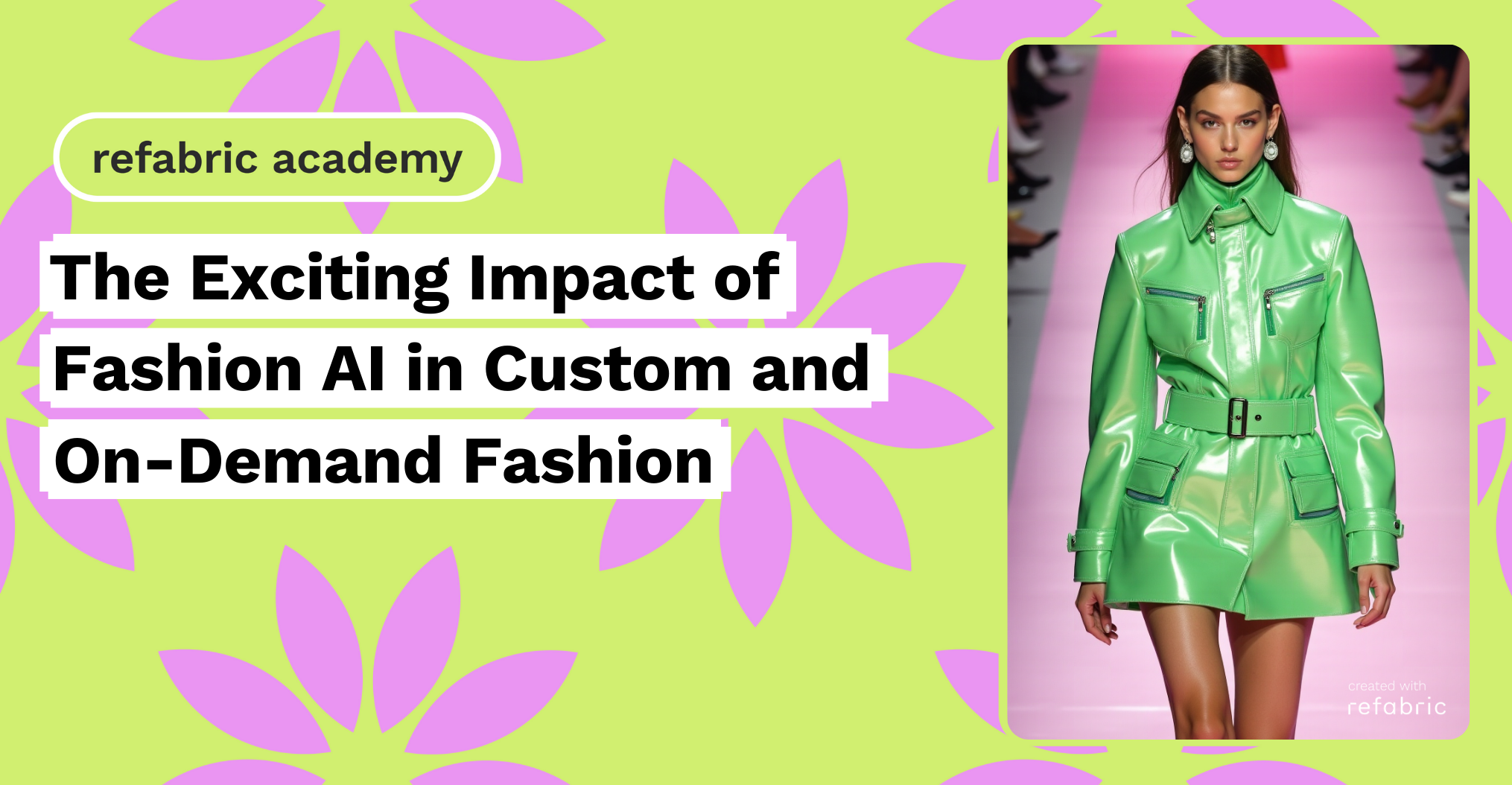Fashion AI is reshaping the landscape of custom and on-demand fashion, offering brands and consumers unprecedented levels of personalization, efficiency, and sustainability. As technology advances, artificial intelligence is playing a crucial role in how garments are designed, manufactured, and delivered, catering to the growing demand for unique, made-to-order fashion.
How Fashion AI Enhances Custom Fashion
Custom fashion has traditionally been associated with high costs and long production times. However, fashion AI is revolutionizing this space by enabling real-time personalization and streamlining design processes. AI-powered tools can analyze individual preferences, body measurements, and style choices to create bespoke garments with precision.
One of the most transformative applications of fashion AI is in generative design, where AI algorithms suggest patterns, color palettes, and fabric combinations tailored to a customer’s unique tastes. Designers can use AI-assisted software like Refabric, an AI tool for fashion professionals, to create hyper-realistic digital prototypes, reducing the reliance on physical samples and expediting the custom design process. Refabric enables designers to generate digital samples efficiently, allowing for quick iterations and precise visualization of fabrics, patterns, and garment structures before production begins.
Additionally, AI-driven body scanning technology ensures a perfect fit, eliminating sizing discrepancies that often lead to product returns. Consumers can simply upload their measurements or use AI-integrated apps that generate accurate 3D body models, making tailor-made fashion accessible at scale.
Revolutionizing On-Demand Production with Fashion AI
On-demand fashion, which minimizes waste by producing garments only when ordered, is gaining traction as sustainability becomes a priority in the industry. Fashion AI is at the forefront of this shift, optimizing production processes and reducing resource consumption.
By leveraging predictive analytics, AI helps brands forecast demand, ensuring that only the most relevant items are manufactured. This eliminates overproduction, a major issue in traditional fashion models. AI-powered automation also enhances manufacturing speed, enabling rapid turnaround times for custom orders without compromising quality.
Furthermore, AIin fashion design streamlines material sourcing by suggesting sustainable fabric alternatives and optimizing cutting patterns to minimize waste. Smart textile technologies, integrated with AI, allow for real-time adjustments in fabric selection, ensuring garments align with both ethical and aesthetic standards.
AI-Powered Personalization for the Modern Consumer
Consumers today crave exclusivity and personalization in their fashion choices. Fashion AI meets this demand by offering hyper-personalized recommendations based on a user’s shopping history, social media behavior, and real-time interactions with digital platforms.
Virtual try-on technology, powered by AI and augmented reality (AR), enables customers to see how a garment will look on them before making a purchase. This not only enhances the shopping experience but also significantly reduces return rates, benefiting both consumers and retailers.
Additionally, AI-driven style assistants provide real-time fashion advice, helping users make informed decisions based on their preferences and upcoming trends. This level of personalization strengthens brand loyalty and enhances customer satisfaction.
Sustainability and the Future of Fashion AI
Fashion AI is not just a technological innovation, it is also a key driver of sustainability in custom and on-demand fashion. By reducing material waste, improving efficiency, and promoting mindful consumption, AI aligns with the industry’s sustainability goals.
AI-powered circular fashion models are paving the way for a more sustainable future, where garments can be designed for longevity, repairability, and recyclability. Brands utilizing AI to optimize their supply chains are reducing their carbon footprint, making sustainable fashion more accessible to a global audience.
AI’s Role in Supply Chain Optimization
Beyond just manufacturing, AI is transforming the entire supply chain. Intelligent logistics powered by AI can track real-time demand, optimize shipping routes, and minimize excess inventory. This results in faster delivery times for custom and on-demand fashion while reducing the environmental impact of transportation.
AI-powered chatbots and virtual assistants further enhance the customer experience by answering inquiries, tracking orders, and providing seamless after-sales support. With AI integration, fashion brands can offer unparalleled customer service, making the shopping experience smoother and more engaging.
To sum up, fashion AI is transforming custom and on-demand fashion by offering innovative solutions that enhance personalization, efficiency, and sustainability. As AI continues to evolve, its role in reshaping the fashion industry will only grow, enabling brands to meet consumer demands while promoting a more ethical and waste-free production model.
Embracing fashion AI is no longer a choice, it is the future of fashion. Brands that leverage AI’s capabilities will set new industry standards, providing customers with superior experiences and products while contributing to a more sustainable world.
